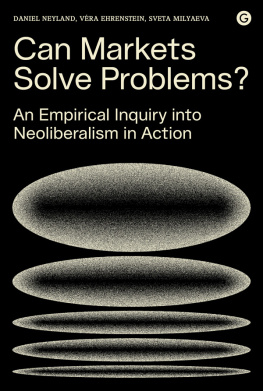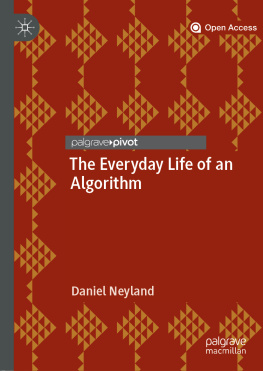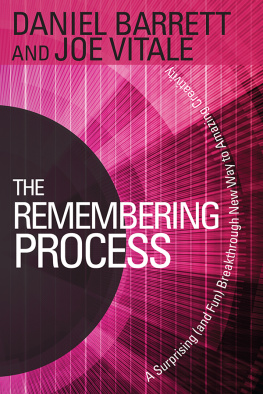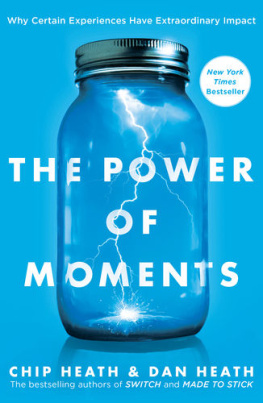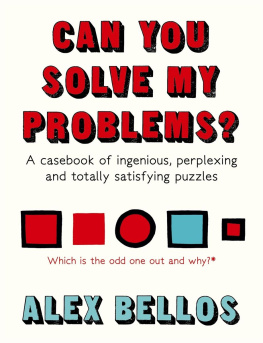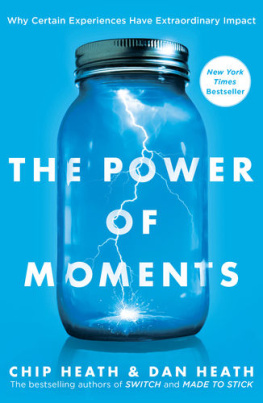Daniel Neyland - Can Markets Solve Problems?
Here you can read online Daniel Neyland - Can Markets Solve Problems? full text of the book (entire story) in english for free. Download pdf and epub, get meaning, cover and reviews about this ebook. publisher: MIT Press, genre: Politics. Description of the work, (preface) as well as reviews are available. Best literature library LitArk.com created for fans of good reading and offers a wide selection of genres:
Romance novel
Science fiction
Adventure
Detective
Science
History
Home and family
Prose
Art
Politics
Computer
Non-fiction
Religion
Business
Children
Humor
Choose a favorite category and find really read worthwhile books. Enjoy immersion in the world of imagination, feel the emotions of the characters or learn something new for yourself, make an fascinating discovery.
- Book:Can Markets Solve Problems?
- Author:
- Publisher:MIT Press
- Genre:
- Rating:3 / 5
- Favourites:Add to favourites
- Your mark:
- 60
- 1
- 2
- 3
- 4
- 5
Can Markets Solve Problems?: summary, description and annotation
We offer to read an annotation, description, summary or preface (depends on what the author of the book "Can Markets Solve Problems?" wrote himself). If you haven't found the necessary information about the book — write in the comments, we will try to find it.
Can Markets Solve Problems? — read online for free the complete book (whole text) full work
Below is the text of the book, divided by pages. System saving the place of the last page read, allows you to conveniently read the book "Can Markets Solve Problems?" online for free, without having to search again every time where you left off. Put a bookmark, and you can go to the page where you finished reading at any time.
Font size:
Interval:
Bookmark:

Can Markets Solve Problems?
Part of the Goldsmiths Press PERC series
Goldsmiths Political Economy Research Centre (PERC) seeks to refresh political economy, in the original sense of the term, as a pluralist and critical approach to the study of capitalism. In doing so it challenges the sense of economics as a discipline, separate from the other social sciences, aiming instead to combine economic knowledge with various other disciplinary approaches. This is a response to recent critiques of orthodox economics as immune to interdisciplinarity and cut off from historical and political events.
At the same time, the authority of economic experts and the relationship between academic research and the public (including, but not only, public policy-makers) are constant concerns running through PERCs work.
For more information please visit www.gold.ac.uk/perc/.
Can Markets Solve Problems?
An Empirical Inquiry into Neoliberalism in Action
Daniel Neyland, Vra Ehrenstein, Sveta Milyaeva

2019 Goldsmiths Press
Published in 2019 by Goldsmiths Press
Goldsmiths, University of London, New Cross
London SE14 6NW
Printed and bound in Great Britain by Clays Ltd, Elcograf S.p.A
Distribution by the MIT Press
Cambridge, Massachusetts, and London, England
Copyright 2019 Daniel Neyland, Vra Ehrenstein, Sveta Milyaeva
The right of Daniel Neyland, Vra Ehrenstein and Sveta Milyaeva to be identified as the authors of this work has been asserted by them in accordance with sections 77 and 78 in the Copyright, Designs and Patents Act 1988.
All Rights Reserved. No part of this publication may be reproduced, distributed or transmitted in any form or by any means whatsoever without prior written permission of the publisher, except in the case of brief quotations in critical articles and reviews and certain non-commercial uses permitted by copyright law.
A CIP record for this book is available from the British Library
ISBN 978-1-912685-15-8 (hbk)
ISBN 978-1-912685-21-9 (ebk)
www.gold.ac.uk/goldsmiths-press

d_r0
Contents
Many thanks to all of those who have contributed to the MISTS (Market-Based Initiatives as Solutions to Techno-Scientific Problems) project and helped to produce this book. We are grateful to the European Research Council (ERC), who funded this project (grant agreement number 313173) and to our research participants for taking time to guide us through the intricacies of market-based interventions. We would like to give special thanks to those who took part in MISTS events: Laura Bear, Will Davies, Noortje Marres, Fabian Muniesa, Marc Boeckler, Sheila Jasanoff, Christian Frankel, Jos Ossandn, Trine Pallesen, Vincent Lpinay, Brice Laurent, Liliana Doganova, Joe Deville, Tom Osborne, Andrew Barry, Koray alkan, Franck Cochoy, Lucia Siu, Tanja Schneider, Xaq Frohlich, Taylor Spears, Javier Lezaun, Mike Upton, Cline Cholez and Pascale Trompette. And those who contributed to sessions we organised at conferences and special issues that we published: Gay Hawkins, Liz McFall, Catherine Grandclment, Alan Nada and Zsuzsanna Vargha. We would also like to thank Goldsmiths for providing a stimulating intellectual environment where our ideas could develop, with particular thanks to Marsha Rosengarten, Martin Savransky, Alex Wilkie, Vikki Bell, Les Back, Jennifer Gabrys, Evelyn Ruppert, Francisca Gromm, Michael Guggenheim, Laurie Waller, David Moats, Nele Jensen and Jess Perriam. Finally we would like to thank organisers of events where we were fortunate enough to present our work, as well as editors of special issues and collective volumes to which we have contributed and colleagues with whom we have discussed various ideas present in this book: Damian ODoherty, Ann Kelly, Linsey McGoey, David Reubi, Steve Woolgar, Monika Krause, Claes-Fredrik Helgesson, Philip Roscoe, Hans Kjellberg, Kean Birch, Dean Pierides, David Stark, ve Chiapello, Anita Engels, Kate Nash and Vik Loveday.
Daniel would also like to thank Sarah, George and Thomas for their unending support and cups of tea.
Sveta thanks Nestor and Yegor for their continuous patience and support.
Vra would like to thank Guillaume for his support and eagerness to discuss what markets are for.
Opening
Market-based interventions designed to solve public problems have become a pervasive feature of collective life over the past 30 years in various fields, from education and social care, to climate change, the digital economy and health. Actions that might once have come under the remit of the state, now involve a variety of what would traditionally have been termed public and private sector actors trying to figure out who and what is responsible for what problem along with what might constitute a viable solution. The creation of these associations between problem and solution has been given greater focus by the formulation of specific market-oriented policies. For example, in researching the field of US data start-up firms, we find regulators seeking a commercial solution to the problem of privacy as a matter of consumer rights under the aegis of the Federal Trade Commission. In efforts to address climate change we find European manufacturing industry, tied into carbon trading through the European Union Emissions Trading System. As we enquired into the health problems of countries described as low-income, we encountered a new global partnership enforcing an Advance Market Commitment to organise the supply of a new vaccine. And in academic research itself we witness growing demands that such work should stimulate economic growth, with universities obliged to demonstrate ever-greater impact through such policies as the UKs Research Excellence Framework. What these share in common is that various market modes of engagement have been called upon to participate in political programmes of action to introduce efficiency and effectiveness into new configurations of intervention.
In order to get close to the action and start to explore some distinct ways that market-based interventions take shape, we begin with three examples of markets introduced into areas once dominated by the state. We will use these examples as heuristic devices to explore some different analytic approaches available for engaging with markets. Subsequently, we will introduce our methodological principles and the market sensibilities that will shape the rest of this book.
How to Get a Grip: Three Examples of Market-Based Intervention
Lets start with the Hooghly shipyards of contemporary India. Trust, a state institution, and rent extracted through short-term leasing arrangements to companies who then offer short-term employment to workers. Much of the land is also illegally sub-let to other temporary organisations, leading to even briefer short-termism. Standards, certification and audit ensure that the product the ships are certified, but the work practices are not and land ownership with its rentier regimes seems overlooked.
Now lets switch attention to post-war Iraq.
In three brief examples, we have moved between locations, times and scales from India to Iraq to the US, from the past to a shabby-looking present and from individual shipyard workers to global institutions. In subsequent chapters we will see how public and private sectors are assembled, and the continual moves made back and forth between demands for greater market efficiency and the building of significant bureaucratic infrastructure to support market-based interventions.
Font size:
Interval:
Bookmark:
Similar books «Can Markets Solve Problems?»
Look at similar books to Can Markets Solve Problems?. We have selected literature similar in name and meaning in the hope of providing readers with more options to find new, interesting, not yet read works.
Discussion, reviews of the book Can Markets Solve Problems? and just readers' own opinions. Leave your comments, write what you think about the work, its meaning or the main characters. Specify what exactly you liked and what you didn't like, and why you think so.

